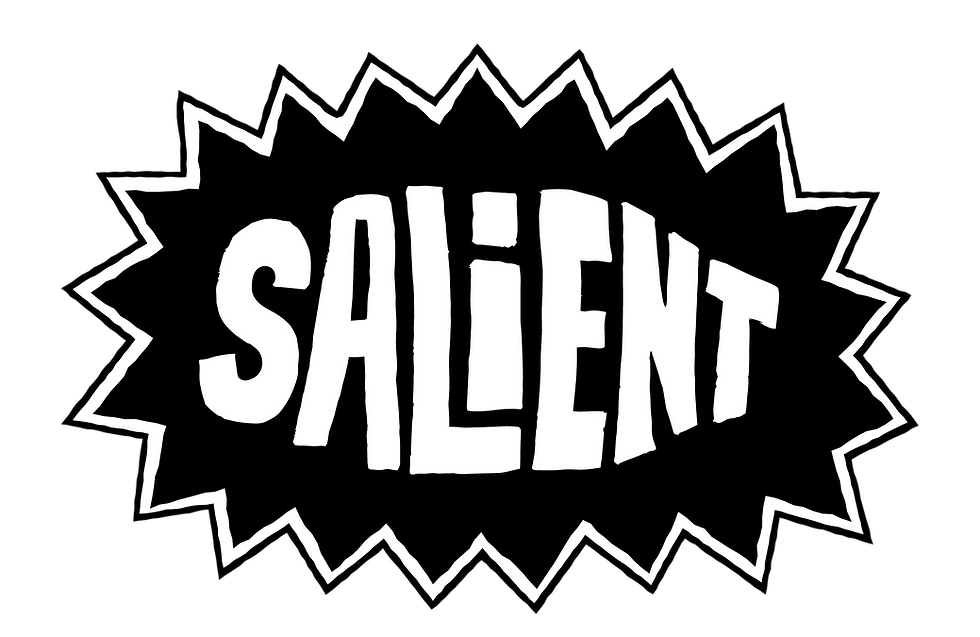Notes from the Underground: Inside Wellington’s Bunker Rave Scene
- Salient Magazine

- Mar 31, 2025
- 3 min read
Words by Will Irvine
I’m the only person left on the bus when the driver drops me off at Mt. Crawford Prison. The area’s been abandoned for so long that I get funny looks from passing drivers as I hop the fence into private farmland. I’m beginning the long trek downhill to meet Katia (aka Smuda) and Will (aka Will O’ Wisp), two DJs who I’ve only ever seen on stage whilst I was under the influence of a number of substances. The two are the cofounders of Poneke Underground Rave, a network of techno enthusiasts who are the latest in a long legacy of underground raves in the hills around Wellington.
The ring of bunkers surrounding Wellington are part of a long history dating back to the 19th Century. They were initially designed as early-warning air and sea defense systems, similar to those in Christchurch and Wellington. A lot of them, including the Fort Ballance ones I would be visiting soon, were built on stolen Maori land, requisitioned under the Public Works Act and other pieces of wartime infrastructure legislation. Today, the bunkers stand empty and littered with graffiti, looking like some kind of dilapidated art project.
As the sun sets, I meet Katia and Will as they haul a set of powerful speakers into a pit that might’ve once held an anti-aircraft gun. They’re accompanied by the owner of the speakers, and a guest performer that very night - Peter, a lifelong music fan who only started DJing for his partner’s 50th birthday. He’s now a commercial DJ, producer, and event promoter, but says that he’s very excited and grateful to be putting together this event. Peter has an upcoming EP on UKR records, which fans of his bunker set will appreciate.
My arrangement with the organisers is simple - I help them set their event up, and I get my interview in the process. As we begin putting up a tarpaulin, I strike up a conversation with Will, who tells me that Wellington’s town scene isn’t accommodating to queer people. “My friends and I were called faggots right outside of Lulu, probably one of the safer clubs in town”. Techno, they said, offered an alternative. “I was drawn to the history… I went to a club in Prague, and it was the first time I’d seen absolutely everybody completely attuned to the music. The true meaning of a rave is to feel free enough to dance and express yourself however you want.
Katia, the more senior of the two, is from Berlin - right in the heart of global techno. Despite their foreign background, they’re quick to mention that they got consent from a local Maori protest site beneath the fortress. While Katia’s fallen in love with Wellington, they were disappointed by the lack of queer-run dance collectives. “While other collectives might brand as queer-friendly, that doesn’t necessarily mean they’re queer-run”. That extended to major nightclubs, Katia told me. “[it’s not] truly diverse, which definitely has to change. We have enough queer and female DJs in Pōneke that just don’t get the same chance and platform to show their talent. In a cis white male dominated scene, feelings of being not good enough are common amongst queer and female DJs.”
The night was a massive success, with word-of-mouth prevailing and a large turnout ensuing. The benefit of Katia and Will’s collective isn’t just to put on a great event and get people interested in techno - it’s also to show people that anyone can do it. Katia tells me that they operate on a simple, trust-based system. “We rely on koha, and we put the bank transfer link all around the location so people know where to send money… the location is secret until the day before the event.” They also publish the kaupapa associated with the event, ensuring that everyone is on board with the same principles of respect and consent.
Katia and Will are also passionate about increasing representation within the DJing scene. They run with their friends Lucy and Chazz, FLINTA* to The Front (FTTF.collective), a DJ Workshop and open decks event run by and for queer people. FLINTA* is a German acronym which includes womxn, lesbians, intersex, non-binary, transgender, and agender people. The workshops were being hosted at local fave b.Space. Katia (Smuda) also hosts monthly their own Radio show FLINTA* Tunes at the community Radio Mouthfull and showcases local Flinta* DJs.
As I headed back home, I was introduced to Felipe, another DJ who’s playing a rave across the other side of the hill. Both teams exchange good wishes to each other, and it’s clear that there’s no enmity or competition. Everyone’s just excited to be here, in a wet bunker overlooking a beautiful city. Here, where despite a dying university and a broke student population, music is being made and shared. Here, where life is happening.



Comments